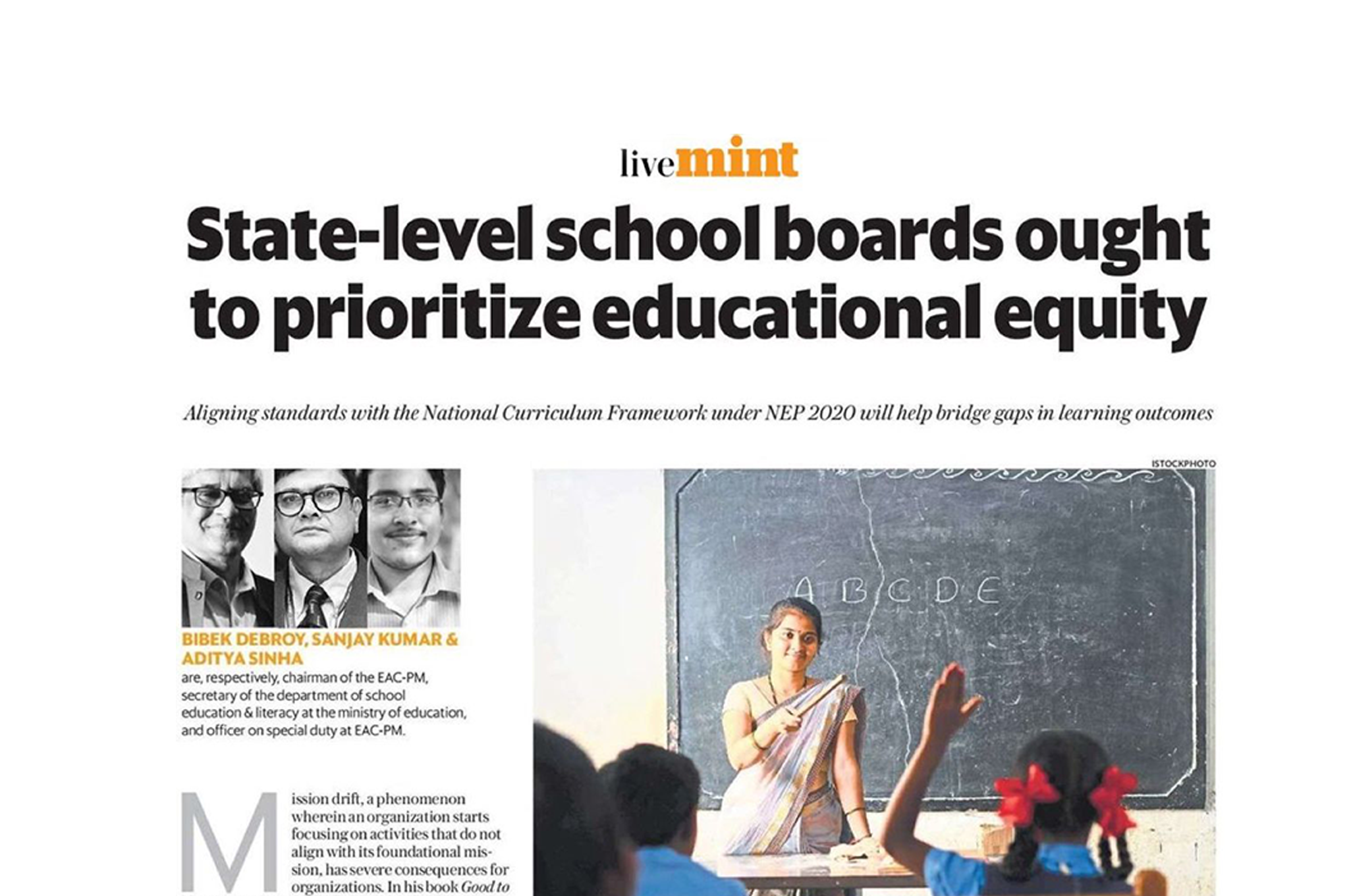True Purpose of Education
- April 29, 2024
- by civom furniture

As professionals in the education industry, we all strive for a system that supports equitable learning outcomes for every child. However, a glaring issue persists in India’s education landscape – the vast discrepancies between state school boards. This fragmentation, as highlighted in a recent Livemint article by Bibek Debroy, Sanjay Kumar, and Aditya Sinha, creates a system riddled with inequalities and undermines the true purpose of education.
The article aptly points out the phenomenon of mission drift – where institutions lose sight of their core objectives. State boards, initially established to set educational standards and develop holistic curriculums, have become fixated on conducting examinations. This obsession with standardized testing overshadows crucial aspects like critical thinking and creativity, hindering a child’s overall development.
The existence of a staggering 60 school boards, each with its own curriculum and priorities, creates an uneven playing field for students. Imagine a national-level race where participants train on different tracks, with some starting miles ahead. This is the reality for Indian students, where board affiliation significantly impacts learning outcomes and opportunities.
The authors propose a solution that emphasizes collaboration over standardization. State boards should prioritize aligning their curriculums with the NCF (National Curriculum Framework), a framework developed under the NEP (National Education Policy) 2020. This would ensure a strong educational foundation that meets national standards while allowing for regional variations. Aligning curriculums with the NCF can encourage a growth mind-set by providing a broader educational experience.
As an advocate for educational equity, we at CIVOM believe individual schools hold the potential to drive positive change. By encouraging a culture of innovation and collaboration, schools can create learning environments that nurture the potential of every child, regardless of their background or the specific board they are affiliated with.
Here are some actionable steps school leaders can take:
- Schools leaders can proactively integrate the spirit of the NCF within their existing curriculums, encouraging critical thinking, creativity, and holistic development alongside subject-specific knowledge.
- Invest in professional development programs that equip teachers with innovative pedagogical approaches aligned with the NCF.
- Schools within the same state board can collaborate to share resources and best practices, promoting a more cohesive learning experience.
- Partner with local organizations to enhance educational opportunities, particularly for students from underprivileged backgrounds.
- Utilize technology effectively to personalize learning experiences and address individual student needs.
A thought-provoking TED Talk by Salman Khan, founder of Khan Academy, emphasizes the importance of personalized learning and speaks about flipping the classroom,
https://ed.ted.com/lessons/let-s-use-video-to-reinvent-education-salman-khanKhan argues for a flipped classroom model where students learn concepts at home and utilize classroom time for deeper exploration and problem-solving. School leaders with state boards can take inspiration and apply these ideas to align with the NCF framework.
Another relevant example Sir Ken Robinson, in his famous TED Talk “Do Schools Kill Creativity?”, highlighted the need for a more holistic approach to education that nurtures creativity and critical thinking skills.
https://www.ted.com/talks/sir_ken_robinson_do_schools_kill_creativity?language=enRobinson’s ideas resonate strongly with Sanjay Kumars’ call for a shift towards encouraging critical thinking and holistic development in our education system.
Let’s move beyond the confines of standardized tests and examinations and empower our students to thrive in a dynamic world. Do you think by actively engaging in these efforts, we can pave the way for a more inclusive and impactful education system?
Related Post
© 2022 CIVOM All rights reserved. Powered by Mrdigito.com
© 2022 CIVOM All rights reserved. Powered by Mrdigito.com




